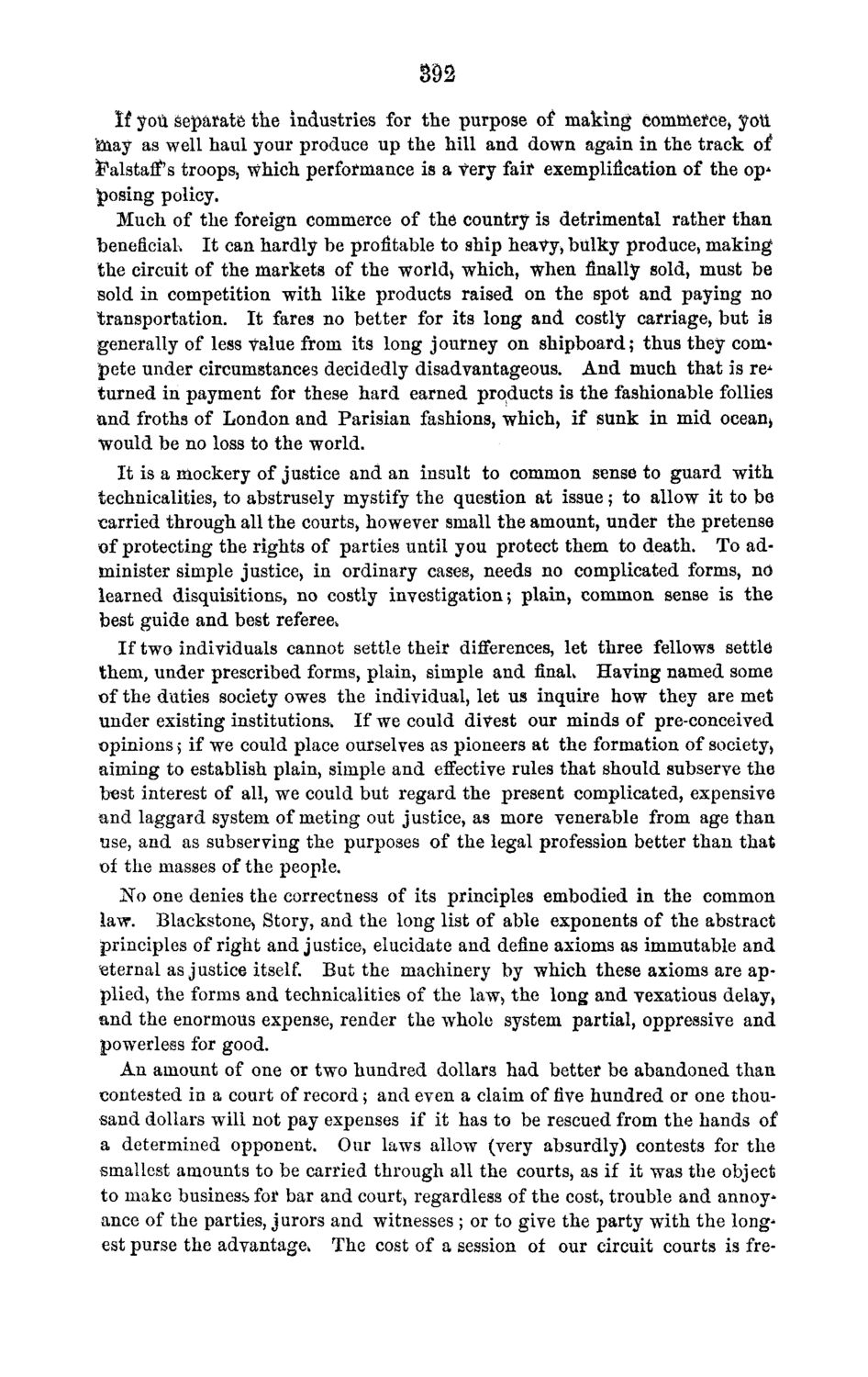| |
| |
Caption: Board of Trustees Minutes - 1870
This is a reduced-resolution page image for fast online browsing.

EXTRACTED TEXT FROM PAGE:
892 If you separate the industries for the purpose of making commerce, yoti aiay as well haul your produce up the hill and down again in the track of J^alstaff's troops, Which performance is a very fait exemplification of the op* posing policy. Much of the foreign commerce of the country is detrimental rather than beneficiaU It can hardly be profitable to ship heavy, bulky produce, making the circuit of the markets of the world* which, when finally sold, must be sold in competition with like products raised on the spot and paying no transportation. It fares no better for its long and costly carriage, but is generally of less Value from its long journey on shipboard; thus they com* |>ete under circumstances decidedly disadvantageous. And much that is re* turned in payment for these hard earned products is the fashionable follies and froths of London and Parisian fashions, which, if sunk in mid ocean* Would be no loss to the world. It is a mockery of justice and an insult to common sense to guard with technicalities, to abstrusely mystify the question at issue; to allow it to be •carried through all the courts, however small the amount, under the pretense of protecting the rights of parties until you protect them to death. To administer simple justice) in ordinary cases, needs no complicated forms, no learned disquisitions, no costly investigation; plain, common sense is the best guide and best referee, If two individuals cannot settle their differences, let three fellows settle them, under prescribed forms, plain, simple and final, Having named some of the duties society owes the individual, let us inquire how they are met under existing institutions. If we could divest our minds of pre-conceived opinions* if we could place ourselves as pioneers at the formation of society* aiming to establish plain, simple and effective rules that should subserve the best interest of all, we could but regard the present complicated, expensive and laggard system of meting out justice, as more venerable from age than use, and as subserving the purposes of the legal profession better than that of the masses of the people. No one denies the correctness of its principles embodied in the common law. Blackstone* Story, and the long list of able exponents of the abstract principles of right and justice, elucidate and define axioms as immutable and eternal as justice itself. But the machinery by which these axioms are applied) the forms and technicalities of the law* the long and vexatious delay* and the enormous expense, render the whole system partial, oppressive and |)owTerless for good. An amount of one or two hundred dollars had better be abandoned than contested in a court of record* and even a claim of five hundred or one thousand dollars will not pay expenses if it has to be rescued from the hands of a determined opponent. Our laws allow (very absurdly) contests for the smallest amounts to be carried through all the courts, as if it was the object to make business for bar and court* regardless of the cost, trouble and annoy* ance of the parties, jurors and witnesses ; or to give the party with the longest purse the advantage. The cost of a session of our circuit courts is fre-
| |